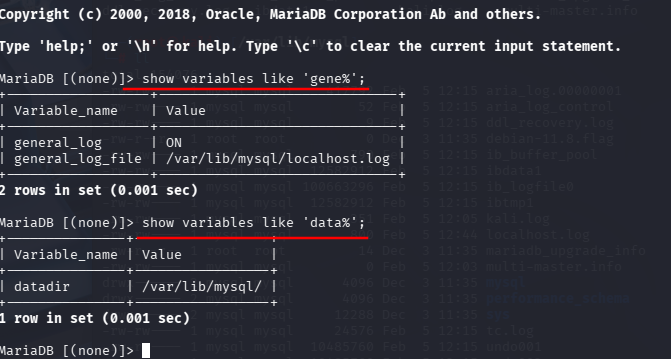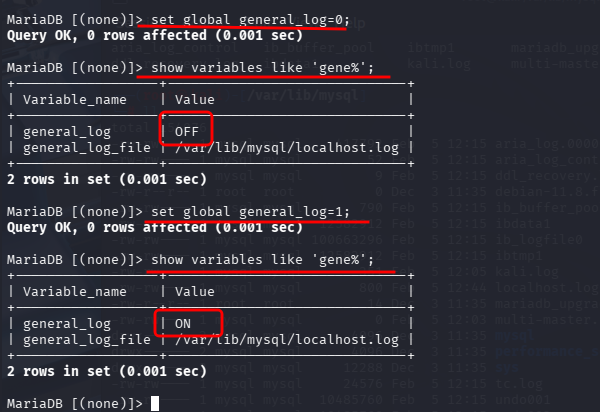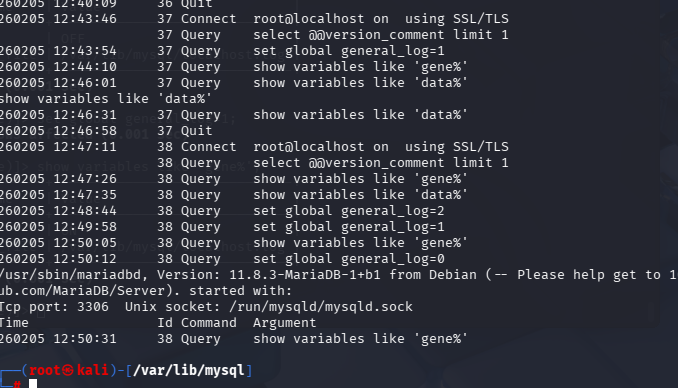반응형
파일 활성화와 비활성화

마지막 변수는 '0' 은 OFF, '1' 은 ON

/var/lib/mysql 디렉토리에서 localhost.log 로그 파일 확인. 시스템 시간과 db에서 컨넥션과 각종 쿼리 로그 확인 가능

반응형
'Operating System > Linux' 카테고리의 다른 글
| 칼리 리눅스 25.4 vm 버전 설치 후 마우스 포인트 사라짐 해결 (0) | 2026.02.02 |
|---|---|
| 칼리 리눅스 가상 머신 (Virtual box, Vmware) 버전 별 다운로드 사이트 (0) | 2026.02.02 |
| [장애처리] 원격 SSH 접속 불가시 (0) | 2012.07.19 |
| CENTOS 5.5 하드디스크 추가 하기 (0) | 2012.03.26 |
| centos 5.5에서 php 업데이트 하기 (2) | 2012.02.23 |




